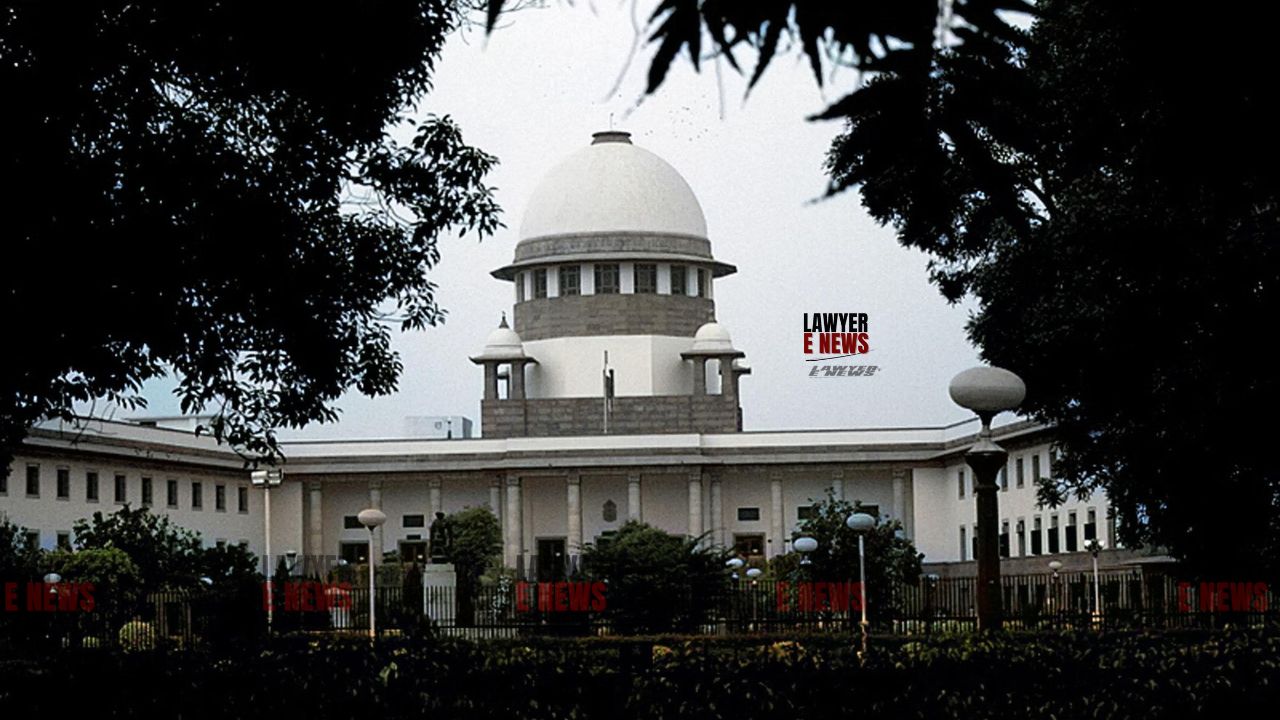-
by Admin
15 February 2026 5:35 AM



The Supreme Court partly allowed the State of Karnataka's appeal and restored the conviction of Accused No. 2 under Section 326 IPC (grievous hurt by dangerous weapons). It also upheld the application of Section 34 IPC (common intention) to both Accused Nos. 2 and 3. However, the Court affirmed the acquittal of Accused No. 1, finding no active role proven against him. The judgment clarified key principles relating to common intention and proportional sentencing.
The case revolved around a violent altercation stemming from a property dispute on September 18, 1999, in Mysuru, Karnataka. The complainant (PW-1) and his son (PW-7) were assaulted by Accused Nos. 2 and 3 using a chopper and knife, respectively. The complainant alleged that the injuries, inflicted by the accused on his stomach and hand, were part of a coordinated attack. Accused No. 1, the complainant’s brother, was alleged to have facilitated the attack by holding the complainant from behind.
The Trial Court convicted all three accused under Sections 326 and 341 IPC read with Section 34 IPC, sentencing them to six years of rigorous imprisonment (RI). The Karnataka High Court, however, acquitted Accused No. 1 and reduced the sentences of Accused Nos. 2 and 3, leading the State to file an appeal in the Supreme Court.
The Supreme Court reinstated Accused No. 2's conviction under Section 326 IPC, noting that he inflicted grievous injuries on PW-7 using a dangerous weapon (chopper). The Court clarified that even injuries to non-vital body parts, when caused with a deadly weapon, satisfy the conditions under Section 326 IPC.
Rejecting the High Court's reduction of Accused No. 2’s conviction to Section 324 IPC, the Court ruled:
"The High Court erred in downgrading the conviction despite the grievous nature of injuries and the deadly weapon used. Injuries on the hand do not mitigate the seriousness of the offense when common intention is established."
The Court emphasized that common intention under Section 34 IPC does not require prior planning and can develop spontaneously during the incident. It held that the concerted actions of Accused Nos. 2 and 3—both armed with weapons—clearly demonstrated a shared intent to cause harm.
Citing Dharnidhar v. State of U.P., (2010) 7 SCC 759, the Court observed:
"Common intention can emerge on the spur of the moment during the commission of the crime. The actions of Accused Nos. 2 and 3 in this case reflect a coordinated effort to attack the victims."
The Court concluded that the High Court’s ruling that Section 34 IPC did not apply to Accused No. 2 was erroneous.
The Supreme Court upheld the High Court’s acquittal of Accused No. 1, who was alleged to have restrained the complainant during the assault. The Court found no substantive evidence of active involvement by Accused No. 1 and stated:
"The High Court's decision to acquit Accused No. 1 is a plausible view based on the evidence and does not warrant interference."
The Court criticized the High Court's reduction of Accused No. 2’s sentence to time served (16 days) and emphasized the need for proportionality in sentencing. It observed that the reduced sentence did not reflect the gravity of the offense and restored a two-year rigorous imprisonment (RI) term for Accused No. 2, matching the sentence of Accused No. 3.
"Parity in sentencing between co-accused is essential to maintain justice. The reduced sentence of 16 days for Accused No. 2 was inconsistent with the severity of the crime."
Decision
The Supreme Court partly allowed the appeal with the following modifications:
Accused No. 2 (K.B. Vijayakumar):
Conviction under Section 324 IPC set aside.
Conviction under Section 326 IPC read with Section 34 IPC restored.
Sentence: Two years rigorous imprisonment (RI) with a fine of ₹75,000.
Accused No. 3 (K.B. Jayakumar):
Sentence of two years RI under Section 326 IPC read with Section 34 IPC upheld.
Accused No. 2 directed to surrender within four weeks to serve the remaining sentence.
Date of decision : January 9, 2025
